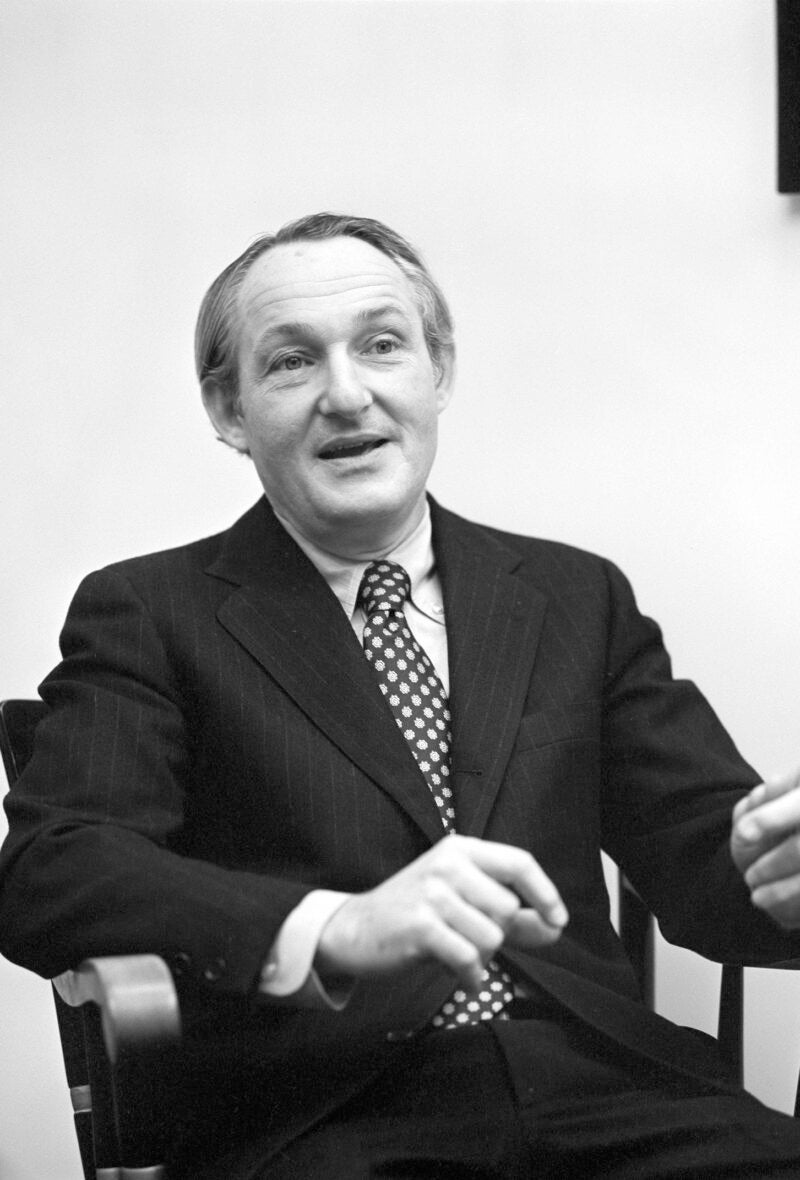David R. Herwitz ’49, Royall Professor of Law, Emeritus, died April 8, 2024. He was 98. A scholar of tax and business law, Herwitz, who taught on the Harvard Law faculty for more than 50 years, is remembered as a beloved teacher colleague and mentor.
“He taught oversubscribed business-related courses, using humor and anecdotes to make them accessible while emphasizing the ethical dimensions of legal practice,” said John Goldberg, interim dean and Carter Professor of General Jurisprudence at Harvard Law School. “Long before law schools embraced problem-based pedagogy, generations of students and lawyers learned from his classes how to exercise thoughtful judgment and help clients achieve their goals.”
“David Herwitz was my teacher, my colleague, and my friend,” said John Manning ’85, Harvard’s interim provost and the Morgan and Helen Chu Dean and Professor of Law. “I first got to know him when he taught me accounting in a lively, fun, and engaging way that I still remember vividly 40 years later. He was also one of the sweetest, most generous colleagues you could ever hope to know, and he loved Harvard Law School. We will really miss him.”
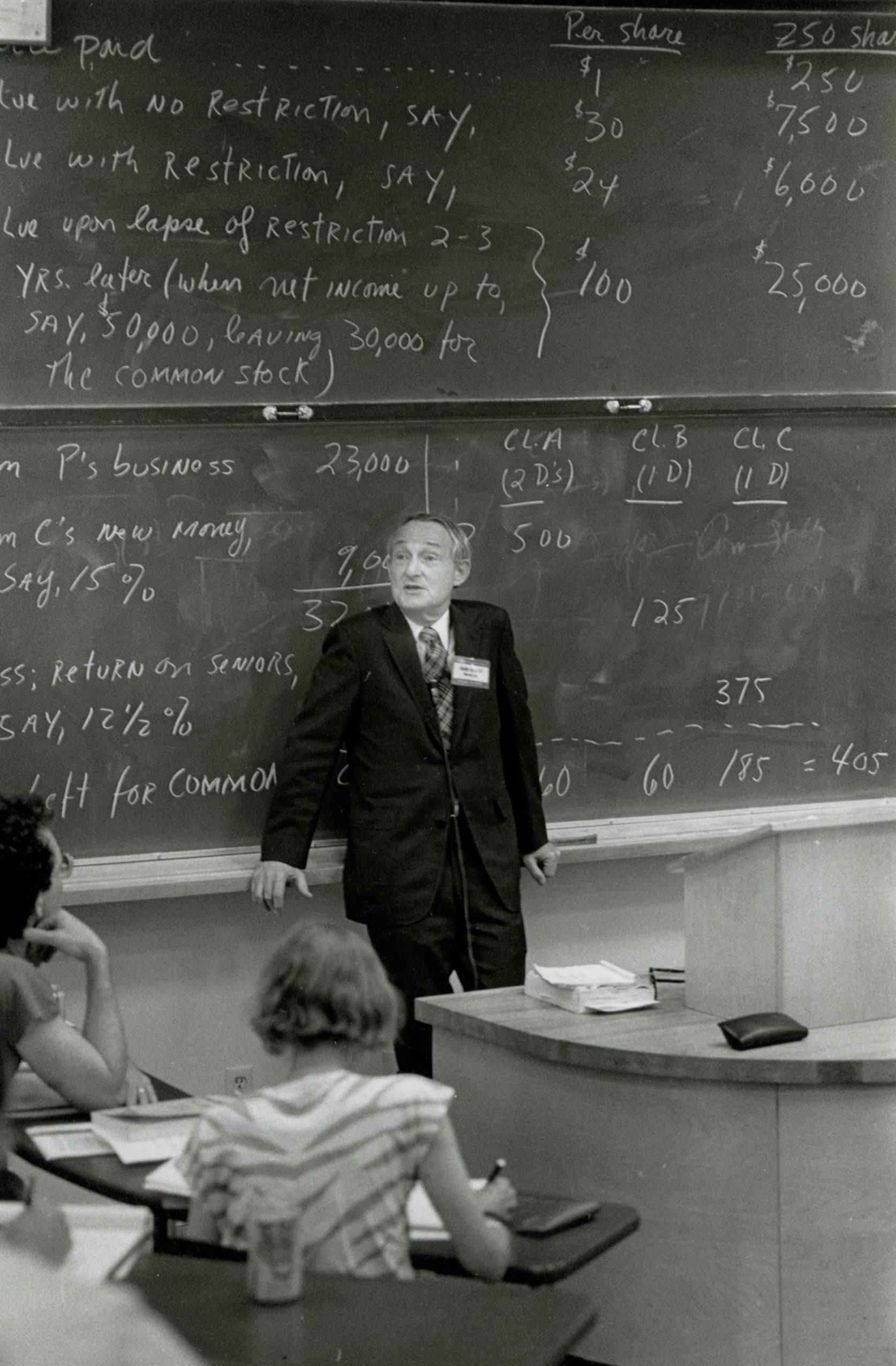
Elizabeth Bartholet ’65, Morris Wasserstein Public Interest Professor of Law, Emerita, who also took accounting with Herwitz, said, “I knew him then and forever after as one of the most caring and warm people I have known during my HLS career.”
“He knew not only how to integrate the technical details of tax law, accounting, and corporate and securities laws but also how to be guided by integrity and wisdom,” said Martha Minow, 300th Anniversary University Professor. “He also was personally kind and devoted to mentoring each new generation.”
“The influence of a great teacher like Dave Herwitz brings him nearer to immortality than most of us get,” wrote Ted J. Fiflis ’57 in a 2006 article in the Harvard Law Bulletin on the occasion of Herwitz’s retirement. Fiflis, who taught accounting, as well as corporate and securities law at the University of Colorado Law School, credits Herwitz with having opened his “mind wide to the vast excitement and significance of this seemingly prosaic language of business.”
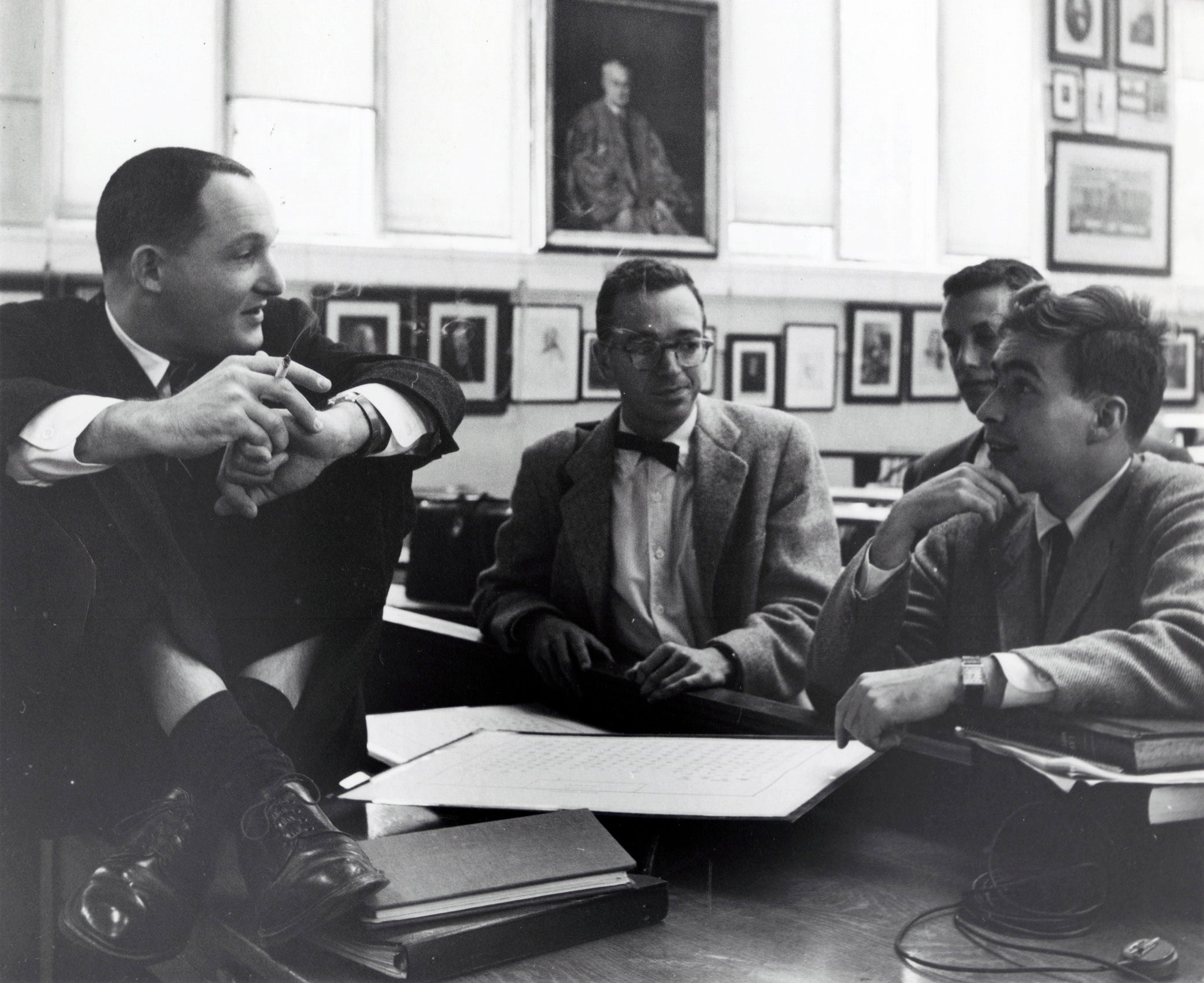
Another alumnus of Herwitz’s accounting class, Laurence Tribe ’66, Carl M. Loeb University Professor, Emeritus, offered similar sentiments: “I can’t say I came to love the subject, but I came to love the professor. He kept in close contact with me, was a helpful and warm guide throughout my academic career and, after his retirement, made sure that he and his marvelous wife Carla paid close attention to me and my partner, Elizabeth. To say I’ll miss his wisdom and charm would be an understatement.”
David Wilkins ’80, the Lester Kissel Professor of Law, recalls the first time he spoke to Herwitz. Wilkins was in his office the summer before he taught his first class, feeling nervous about the prospect, when there was a knock on the door. “It was Davey Herwitz inviting me and my wife to dinner at his house in Swampscott,” he recalled. It was only after they arrived that it sunk in that the sole purpose of the evening was for Herwitz and his wife Carla (also a lawyer and Harvard Law School graduate) to welcome them to the community, said Wilkins. “Davey and Carla had made something of a tradition of hosting such dinners for new faculty when the law school was a smaller and more homogenous place.”
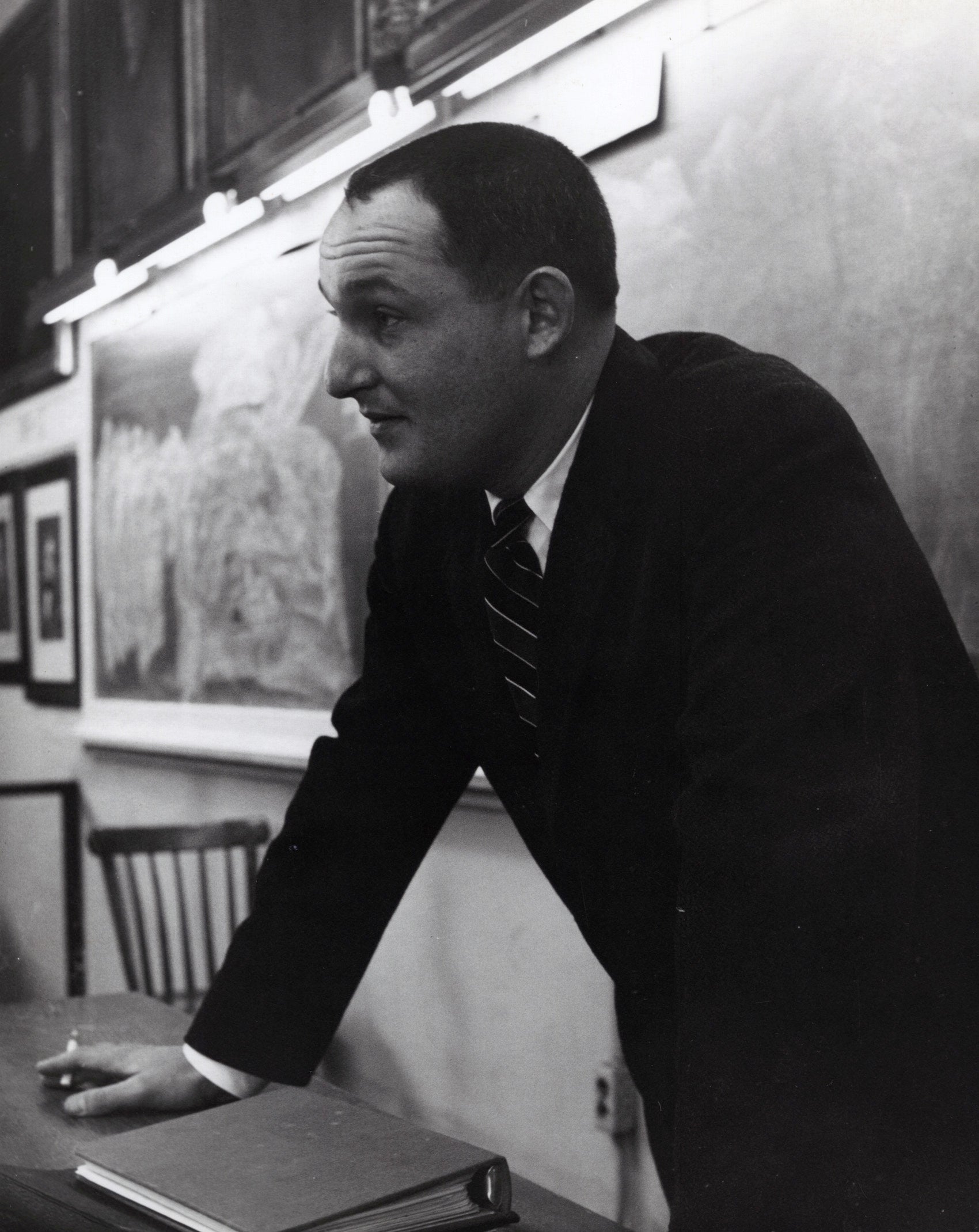
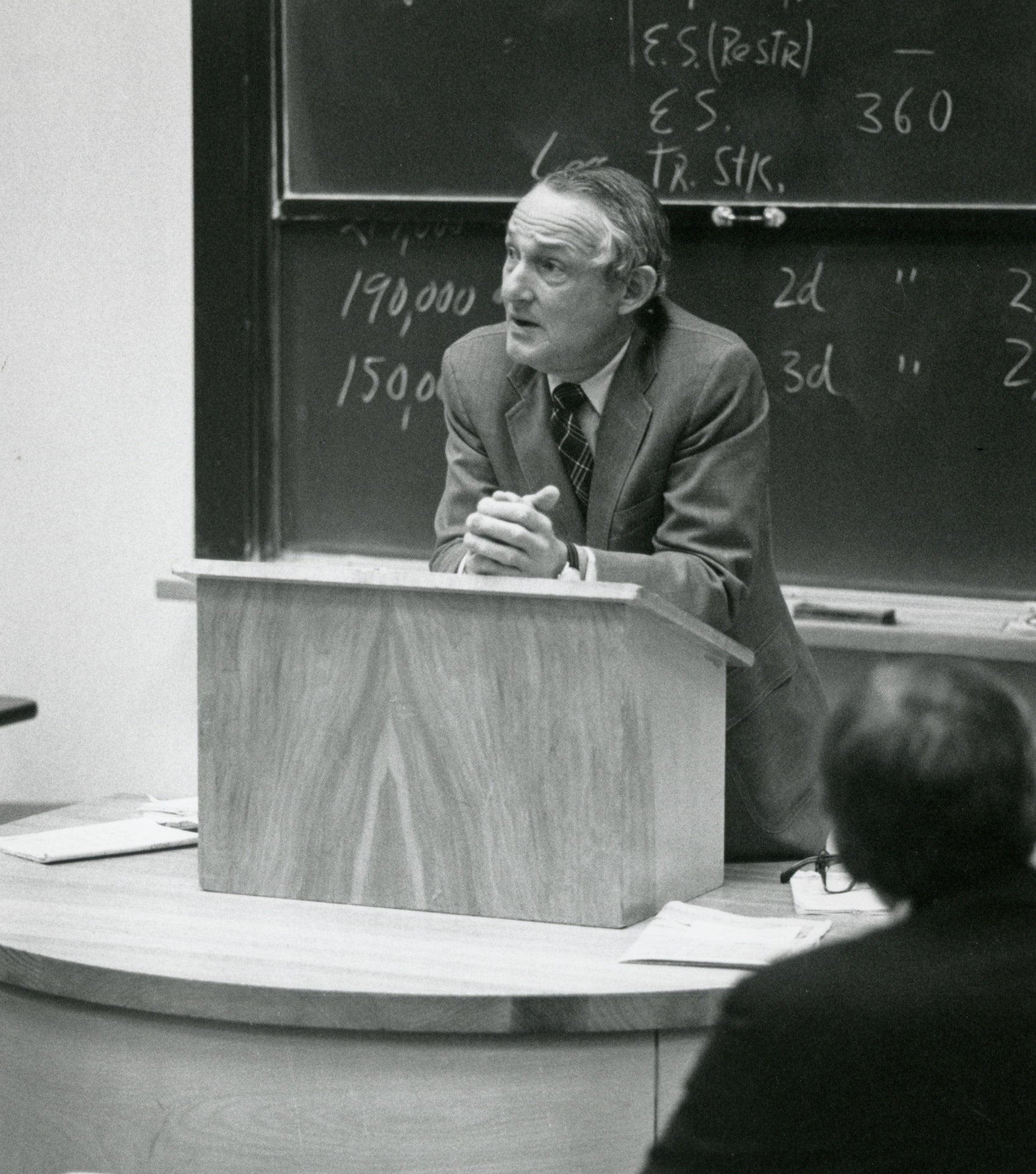
“That was Davey,” Wilkins said. “A man steeped in tradition with so great a command of the King’s English that even the least attentive faculty colleague stopped and listened when he spoke in faculty meetings for the pure joy of hearing his exquisite — and exquisitely Boston accented — erudition. And yet a man who knew that the best way to preserve the traditions he loved in the school and profession to which he dedicated his life was to welcome the very newcomers who would inevitably bring change.”
Herwitz began his undergraduate studies at the University of Wisconsin before transferring to MIT and receiving an S.B. in 1946. As a student at Harvard Law School, he served on the Board of Student Advisers and the Harvard Law Review. After graduating in 1949, he worked briefly on the U.S. Tax Court before entering private practice at the firm Mintz, Levin.
Herwitz was a lecturer at the Northeastern University School of Law before he joined the Harvard Law faculty as an assistant professor in 1954. He was named a professor at Harvard Law three years later, becoming the Austin Wakeman Scott Professor of Law in 1980, and the Royall Professor of Law, in 2003, before retiring in 2006.
For three years, beginning in 1961, he was a consultant to the U.S. Treasury Department working with tax expert Stanley Surrey, then assistant secretary of the Treasury. Herwitz also played an important role in developing the law school’s offerings in international taxation, including being involved in the International Tax Program, which trained tax officials from around the world. And starting in 1984, he served for many years as director of the school’s Program of Instruction for Lawyers, which brought attorneys from across the country and eventually around the globe to the school for sessions focusing on new developments in a range of fields and in the legal profession.
In 1978, Herwitz co-wrote “Accounting for Lawyers,” which focused on accounting issues that frequently arise in the practice of law. The sixth edition of the book was published only two years ago, when he was still a co-author. He also wrote “Business Planning: Materials on the Planning of Corporate Transactions.”
Herwitz is survived by his wife, Carla Barron Herwitz ’55; a son, Andrew; and three grandchildren.
